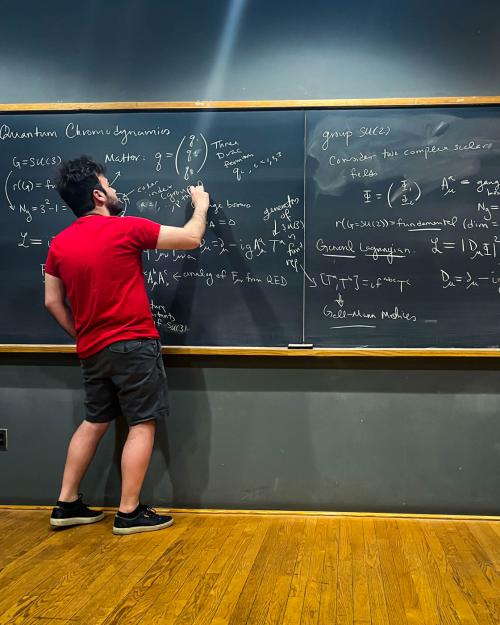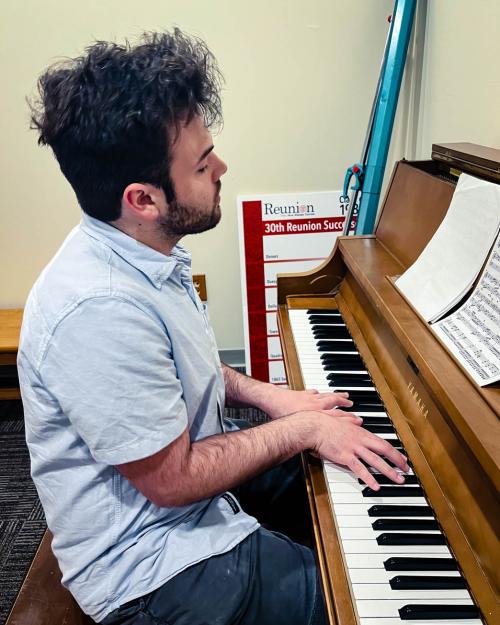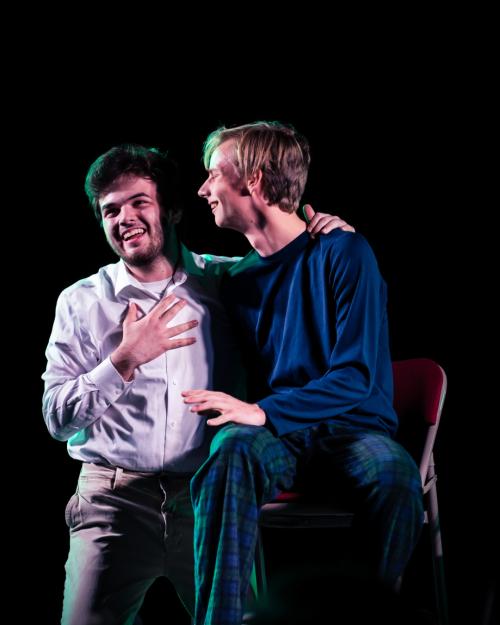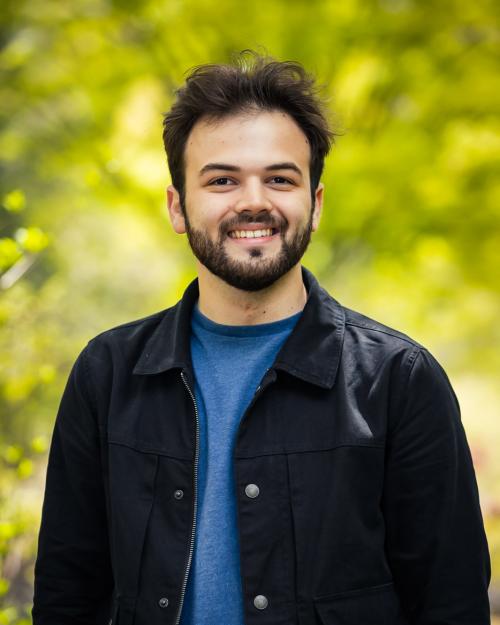Jeffrey Backus
Physics & Mathematics
Jeannette, Pa.
Why did you choose Cornell?
Since I was in fourth grade, my dream was to become a great scientist. At first, I thought I wanted to be an astronomer, but in middle school I began to read popular science books on
quantum mechanics. From that point on, I knew I wanted to be a physicist. In some of these books, Cornell was mentioned: many great physicists, like Hans Bethe, Richard Feynman, Steven Weinberg and Freeman Dyson have passed through the Cornell physics department in one form or another. However, without much understanding of how experimental physics works, I was driven to Cornell primarily by the particle accelerator located on campus. It was amazing to me in middle and high school that I could go to college in a place that runs its own large-scale physics experiments. When I came to Cornell, I wanted to get involved right away. I quickly learned, however, that the accelerator had been long outpaced by other particle physics experiments and was now used as a synchrotron source for a variety of other scientific applications. But, it didn’t matter in the end: the strength of the particle physics department, due in part to experiments done a few decades ago at the site of the current accelerator, made the choice an excellent one.
What are the most valuable skills you gained from your Arts & Sciences education?
Many people have this view that, in pursuing higher education, one’s main goal should be to gain knowledge in certain subjects of study, often in order to pursue some career. While knowledge is a fortunate byproduct of a good university education, it has never seemed to me that this should be the main object. When I go from Goldwin Smith Hall to Klarman Hall, I always see a quote from former Cornell president Hunter R. Rawlings III: “Genuine education is not a commodity, it is the awakening of a human being.” Normally in a day at Cornell, I don’t stop to think much about my surroundings, but seeing this quote frequently gives me pause. In the past four years in the College of Arts & Sciences, I feel I have been “awakened:” I have developed my skepticism, pursued questions with precision and confidence and curated the scientific mindset and outlook on the world that I have always wanted. My education in A&S has made me into a more careful, inquisitive and thoughtful member of society, putting me on the path to fulfilling my goal of becoming an accomplished scientist.
What have you accomplished as a Cornell student that you are most proud of, either inside the classroom or otherwise?
I have conducted research in particle physics since my sophomore year. At first, I worked on the
experimental side, testing new particle-tracking detectors for a planned upgrade at the Large Hadron Collider. However, I switched to theoretical work during my junior year and have been with Prof. Yuval Grossman’s group ever since. The project we began at the time turned into a year-long effort, which included my writing a manuscript intended for publication. Going through the entire research process — from the initial idea to writing a paper — was the most amazing and instructive experience I’ve had at Cornell. In a period of one year, I grew from an undergraduate physics major into a budding physicist, learning an immense amount from actively participating in research, as well as from interactions with my collaborators. Putting the paper into the larger community and submitting it to a journal is certainly the accomplishment I am most proud of from my years at Cornell.
If you were to offer advice to an incoming first year student, what would you say?
In the midst of all that Cornell can throw at you, never forget that you are a human being. Regardless of your ambition or the lofty goals you have set for yourself, remember to take time
for yourself: pursue non-academic interests, go to parties, develop strong relationships and, above all, keep balance. Life is a complicated mess full of surprising twists and turns, and the experiences to be had are as innumerable as the stars. Despite how it may seem in the moment, academic pursuits do not define you, there is so much more to success and fulfillment. Try to gather all the experiences, both good and bad, that you can. It’s amazing what you can learn if you take in all that life has to offer.
What are your plans for next year?
Following graduation, I will begin a Ph.D. in theoretical high-energy physics as a Centennial Fellow at Princeton University. It’s truly amazing to be able to type that sentence. Since I was in middle school, I dreamed of researching at the frontier of human knowledge, and, after years of work and sacrifice, that dream is finally coming true. To say I am excited for my career is a certifiable understatement. During the next five years, I will grow into a practicing physicist and hopefully begin a career of furthering humanity’s knowledge of the universe.
Every year, our faculty nominate graduating Arts & Sciences students to be featured as part of our Extraordinary Journeys series. Read more about the Class of 2023.







